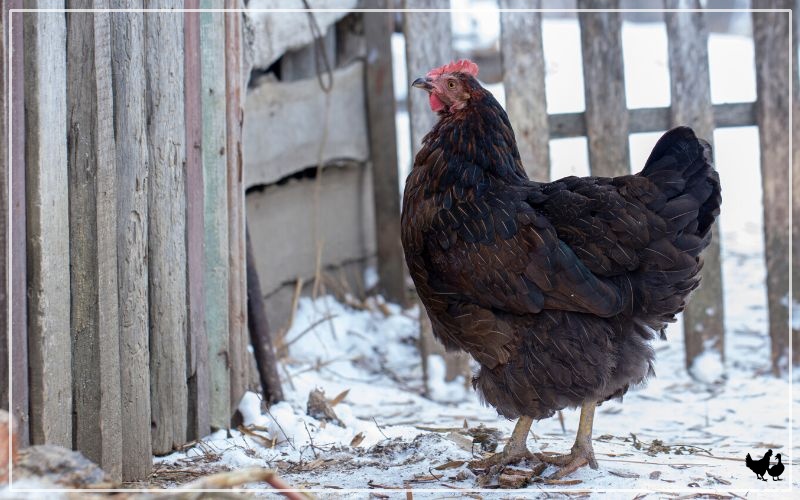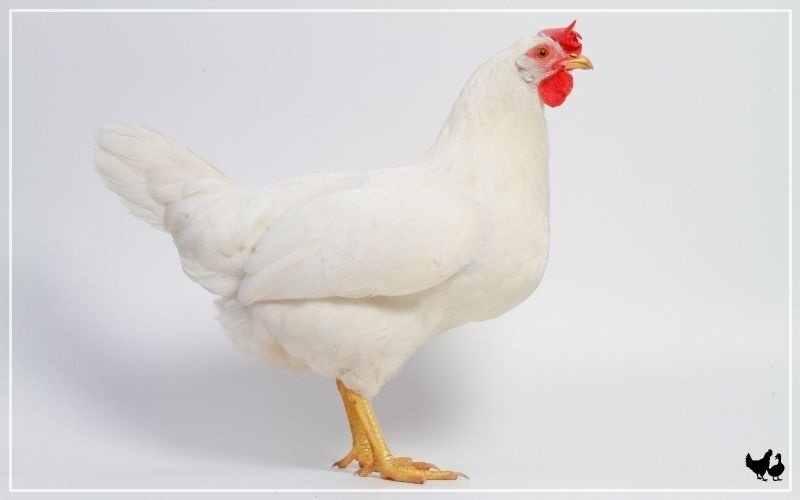How to Double Chicken Egg Production in Winter?
Winter is a pretty challenging season for chicken raisers, especially those raising chickens specifically for eggs. Egg production in nearly all chicken breeds is at its lowest during wintertime.

If you have been collecting ten eggs daily from your hens, you will surprisingly find yourself collecting around three eggs daily in winter. The number of eggs you collect will continue plummeting as winter takes its toll. Luckily, you can use easy tricks to double chicken egg production in winter.
3 Steps to Double Chicken Egg Production in Winter
The primary reason chicken raisers loathe wintertime is because it adversely affects egg production. Even the most proficient laying chicken breeds won’t meet half of their egg production during wintertime.
As nasty as wintertime may be for chicken raisers, it’s easy to double chicken egg production and get more eggs during wintertime. Kindly follow these three steps if you want to double chicken egg production in winter.
– Setup a Simple Greenhouse
A simple greenhouse for your chickens during wintertime can provide an excellent shelter for the egg-laying birds in your flock. Like plants flourish and give a plentiful harvest when growing in a greenhouse during winter, your chicken will also produce plenty of eggs while living in a simple greenhouse during the wintertime.
A simple greenhouse can help your chickens keep warm during wintertime.
Furthermore, living in a greenhouse means your chickens won’t lose the heat they generate because the conditions in a greenhouse will help the birds retain their body heat. Again, a greenhouse is brighter than a standard coop.
Consequently, your chicken will receive enough daylight hours in winter when living in a greenhouse. Chickens have poor egg production in winter because they don’t receive sufficient light, which is crucial for triggering egg production in chickens.
Here are some tips to help you set up a greenhouse for your chickens in winter to boost egg production:
- Use a transparent cover– A transparent cover or material for your greenhouse can help trap more light. It can also allow some warmth to enter the greenhouse, ensuring your chickens are warm and that the eggs don’t freeze due to the cold biting winter temperatures.
- Use a canopy roof– Your greenhouse should have a canopy roof instead of the standard flat roof on the typical chicken coop. A canopy roof will ensure the snow goes down other than remaining on top. Hence, you will not have to shovel snow from the roof when your simple greenhouse has a canopy roof.
- Create organic bedding in the greenhouse-Chickens need to be active even in winter. Having a greenhouse with organic bedding can give your chickens an activity to indulge in to keep them warm while helping them generate heat. You can create organic bedding from sawdust, hay, or straw. Your chickens will love scratching on the bedding, and they will beat boredom while keeping themselves warmer. Organic bedding will also help trap heat from below the greenhouse. Thus, your chickens’ feet won’t freeze because of the freezing temperatures below. Furthermore, organic bedding will prevent the eggs from freezing. Frozen eggs aren’t edible, and they can’t hatch.
– Have an Adequate Chicken Coop
Your chicken coop should be suitable for your chickens in all seasons, including wintertime. It’s wise to have a good chicken coop that will encourage chickens to keep laying in winter. For instance, your cage should have sufficient lighting to encourage your birds to lay consistently. It should also have good insulation to trap heat and keep the cold from entering the coop.
A good coop for chickens in winter should be relatively smaller to encourage chickens to come together and generate heat due to body contact. You can raise the cage a couple of inches from the ground to ensure cold temperatures don’t get to your chickens’ feet, ultimately freezing the birds.
A good chicken coop should have comfy and thick bedding. The thicker the bedding the better because thick bedding can trap more heat than thinner bedding. Straw can help you make thick, warm bedding for your chickens in winter.
The best chicken coop for layers in winter should be an open-air coop. An open-air chicken coop allows for better airflow and improved ventilation. It helps the chickens self-regulate their body temperatures, so they don’t suffer from hypothermia.
An open-air cage allows your chickens to keep warm and receive enough light while protecting them from predators. Your chickens will retain their egg production in winter while living in an open-air coop because they will get the light they need to trigger their reproductive organs to help them continue laying.
Most importantly, an open-air cage will keep your birds away from the snow in your yard in the winter. Consequently, your chickens won’t succumb to cold or suffer from frostbite because of being outside in the wintertime.

– Use Heat Mats Under Nest Boxes
Hens won’t lay in freezing nest boxes, affecting egg production. However, using heat mats under the nest boxes can ensure the hens have a warm place to lay. Furthermore, it also stops the eggs from freezing. The number of eggs you collect from your hens will decline if the birds lay in freezing nest boxes.
The heat mats you place under the nest boxes should be at least 20 cm thick or thicker because the thicker the mats, the more heat they will generate.
Why do Chickens Lay Fewer Eggs in Winter?
Chickens lay fewer eggs in winter because they lack enough light. The freezing temperatures also send signals to the chickens’ bodies telling their reproductive organs to halt egg production. Again, free-range chickens don’t have access to many food items that encourage them to lay in winter.
Conclusion
Winter can be a terrible time for those keeping chicken for eggs. The reduction in daylight hours in winter can suppress a hen’s reproductive organs, prompting her to cease laying. Colder temperatures can also slow down a hen’s egg-production ability.
You can boost egg production by providing the hens with good housing conditions and keeping them warm to double their egg production in winter.



